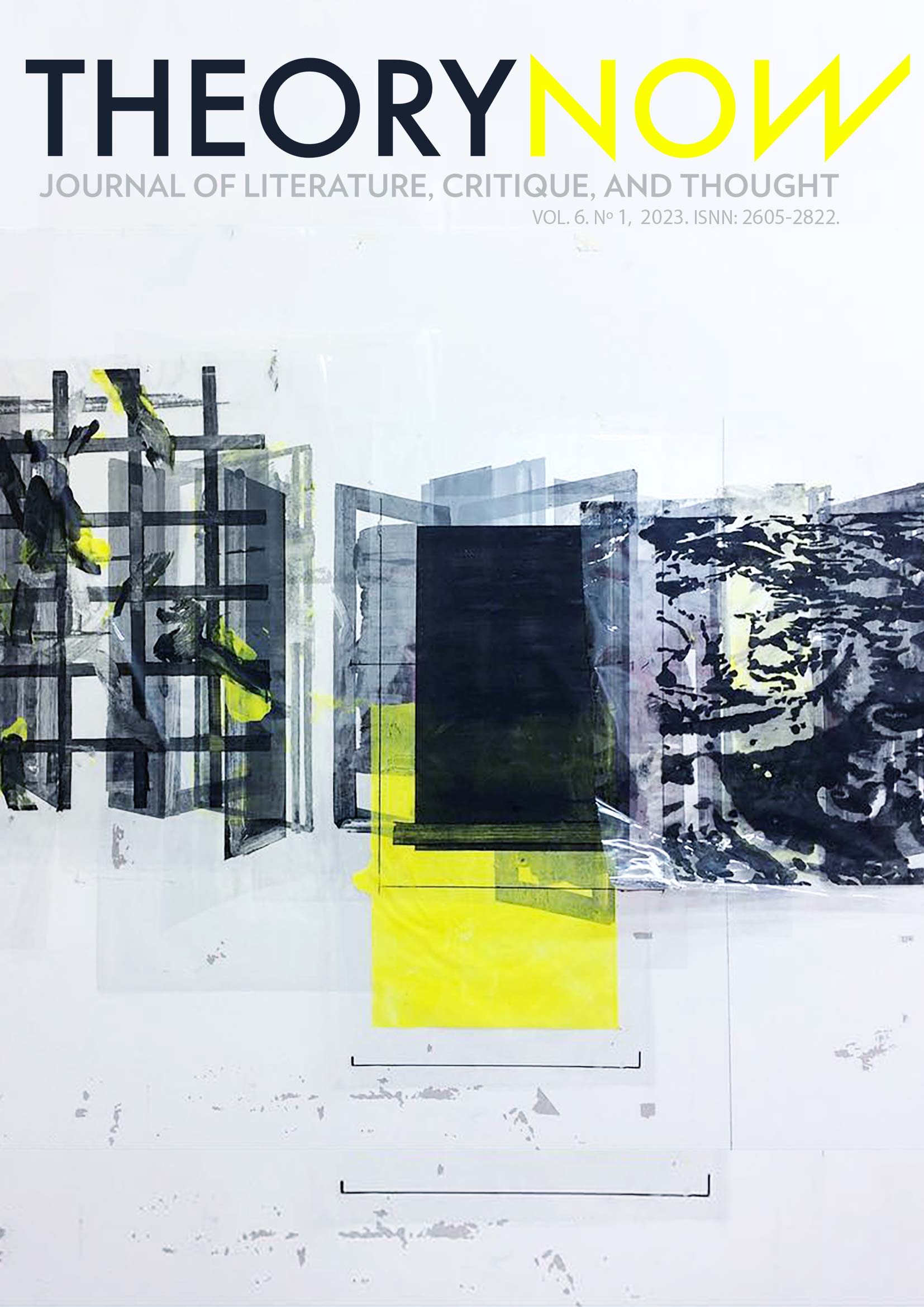Escribir el trauma: El entrelazamiento de lo somático, lo semiótico y lo simbólico
DOI:
https://doi.org/10.30827/tn.v6i1.26702Palabras clave:
soma, semiótico, simbólico, escritura del trauma, abyección, metáfora, lenguaje poético, eterno retornoResumen
En lugar de pensar en la escritura del trauma como un “llegar a un acuerdo”, como algún tipo de esfuerzo teleológico para trascender o reconciliarse con la experiencia traumática, propongo que la escritura del trauma implica procesos de “estar-con” el cuerpo, a pesar del abrumador y alarmante deseo de distanciar al yo del trauma. Es decir, escribir el trauma y estar-con el cuerpo entraña un riesgo: al escribir, el sujeto pone en peligro el colapso de la subjetividad al acercarse a lo abyecto. El sujeto que elige llevar la realidad subjetiva interna del trauma en el cuerpo, experimentada fenomenológicamente, al ámbito simbólico, social-histórico compartido, se aproxima a dicho umbral. Comienzo con una descripción de la descripción que hace
Kristeva de la abyección del yo, la amenaza que se cierne tras la escritura del trauma. A continuación, examino la relación entre los síntomas traumáticos y la metáfora a través de las obras de Kristeva y Jacques Lacan. Tras comprender esta relación, describo la concepción de Kristeva del lenguaje poético y afirmo que es lo que mejor capta la expresión somática del trauma en el cuerpo. Por último, hago algunas consideraciones sobre por qué el sujeto elegiría escribir el trauma, revisitando lo abyecto, y reflexiono
sobre el horror de la concepción de Friedrich Nietzsche del eterno retorno para el superviviente del trauma.
Descargas
Citas
Caruth, Cathy, editor. Trauma: Explorations in Memory. Baltimore, The Johns Hopkins University Press, 1995.
____. Unclaimed Experience: Trauma, Narrative, and History. Baltimore, The John Hopkins University Press, 1996.
Felman, Shosana and Dori Laub. Testimony: Crises of Witnessing in Literature, Psychoanalysis, and History. New York, Routledge, 1992.
Felman, Shosana. The Scandal of the Speaking Body. Stanford, Stanford University Press, 2003.
Ionescu, Arleen and Maria Margaroni, editors. Arts of Healing: Cultural Narratives of Trauma. London, Rowman & Littlefield, 2020.
Kansteine, Wulf and Harald Weilnböck. “Against the Concept of Cultural Trauma or How I Learned to Love the Suffering of Others without the Help of Psychotherapy”. Cultural Memory Studies: An International and Interdisciplinary Handbook, edited by Astrid Erll and Ansgar Nünning, Berlin, De Gruyter, 2008, pp. 229-240.
Kristeva, Julia. Desire in Language, edited by Leon S. Roudiez, translated by Thomas Gora, Alice Jardine, and Leon S. Roudiez. New York, Columbia University Press, 1980.
____. Powers of Horror: An Essay on Abjection, translated by Leon S. Roudiez. New York, Columbia University Press, 1982.
____. Revolution in Poetic Language, translated by Margaret Waller. New York, Columbia University Press, 1984.
____. Black Sun: Depression and Melancholia, translated by Leon S. Roudiez. New York, Columbia University Press, 1989.
____. The Severed Head: Capital Visions, translated by Jody Gladding. New York, Columbia University Press, 2012.
Lacan, Jacques. Écrits, translated by Bruce Fink. New York, W. W. Norton & Company, 2002.
____. The Four Fundamental Concepts of Psychoanalysis: The Seminar of Jacques Lacan, Book XI, edited by Jacques-Alain Miller, translated by Alan Sheridan. New York, W. W. Norton & Company, 1977.
LaCapra, Dominic. Writing History, Writing Trauma. Baltimore, The Johns Hopkins University Press, 2001.
Nietzsche, Friedrich. “Thus Spoke Zarathustra”. The Portable Nietzsche, edited and translated by Walter Kaufmann. New York, Penguin Books, 1954.
____. The Gay Science, translated by Thomas Common. New York, Barnes & Nobel, 2008.
Porges, Stephen W. The Polyvagal Theory. New York, W. W. Norton & Company, 2011. Van der Kolk, Bessel. The Body Keeps the Score: Brain, Mind, and Body in the Healing of Trauma. New York, Viking, 2014.
Van der Kolk, B. A., A. C. McFarlane, and L. Weisaeth, editors. Traumatic Stress: The Effects of Overwhelming Experience on Mind, Body, and Society. New York and London, The Guilford Press, 1996.
Descargas
Publicado
Cómo citar
Número
Sección
Licencia
Theory Now Journal of Literature, Critique, and Thought es una publicación de acceso abierto e inmediato totalmente gratuita, tanto para lectorxs como para autorxs. Lxs autorxs no pagan ningún tipo de tasa por el proceso editorial de sus artículos. Permitimos la lectura, descarga, copia, distribución, impresión, búsqueda, enlace o reutilización con fines no comerciales de todos los trabajos publicados, siempre que se citen la autoría, la revista y el órgano editor. Todo material intelectual publicado en esta revista se encuentra protegido con una licencia de Creative Commons Reconocimiento-NoComercial .
Recomendamos encarecidamente la difusión de los artículos en redes sociales (Facebook, Twitter, LinkedIn, etc.) y científicas (ResearchGate, Academia.edu, etc.), repositorios institucionales universitarios y otros repositorios públicos, blogs y webs personales o institucionales, Google Scholar, ORCID, ResearchID, ScopusID, etc. En cualquier caso, la propiedad intelectual de los artículos y los posibles derechos económicos derivados de ellos son exclusivamente de sus autores.













